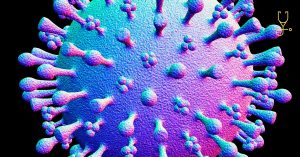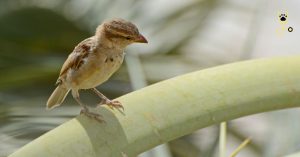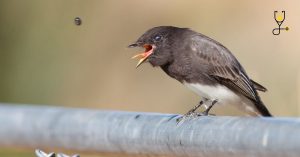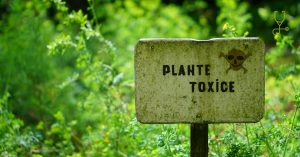u For bird owners, taking care of their pet’s beak is just as important as any other part of its anatomy. After all, the beak is a vital tool for a bird to survive— it helps them pick up food, climb branches, and build nests. Therefore, understanding how to maintain your pet’s beak health is key in giving them the best life possible! Below you will learn about all aspects of bird beaks – from what materials are safe for them to chew on to spotting signs of potential problems so that they can get the necessary medical attention in time.
General Beak Health issues
1. Cracks and splits:
Certain hard materials, such as walnut shells, can cause the beak to crack or split. If you notice any chips in your bird’s beak, it is important to consult with an avian vet right away.
2. Infections:
Bacteria or fungus can infect the beak and cause it to become swollen or discolored. This can lead to difficulty eating, so it is important to look out for any signs of infection in your bird’s beak.

3. Overgrown Beak:
A bird with an overgrown beak may not be able to eat properly, making it difficult to get the nutrition it needs. An avian vet can provide advice on how to trim and care for your bird’s beak.
4. Beak Trauma:
Injuries such as bites from other birds or objects can cause trauma to a bird’s beak, leading to infection or even bleeding. Keep an eye out for any signs of trauma and take your bird to a veterinarian right away.
5. Malnutrition:
A diet lacking in nutrients or vitamins can lead to beak deformities and other health problems. Make sure that your bird is getting the proper nourishment it needs.
Learn More: How A Cuttlebone Helps a Bird Groom Its Beak While Providing Calcium
6. Mites:
Tiny parasites called mites can burrow into the beak and cause irritation and inflammation. If you notice any signs of mites, take your bird to an avian vet right away.
7. Tumors:
Beak tumors can develop in some birds and will need to be surgically removed by a veterinarian.
8. Abscesses:
These are pockets of infection in the beak that will need to be drained by a vet.

9. Trauma/Infection:
Bites or scratches from other birds can cause trauma and infection to the beak, which should receive medical attention right away.
10. Deformities:
Congenital deformities such as overgrown or misshapen beaks can affect a bird’s ability to eat and groom itself, so it is important to get these looked at by an avian vet as soon as possible. By keeping an eye out for any signs of distress in your bird’s beak, you can ensure that they are always getting the best care possible! With proper nutrition and regular visits to the veterinarian, you can help your feathered friend stay healthy and happy for years to come. Thanks for reading! Be sure to consult your avian vet if you have any questions or concerns about your bird’s beak health.
How to Prevent Beak Health issues
- Provide your bird with a variety of perches and toys to chew on, including natural branches, wooden blocks, and vegetable-tanned leather strips that are safe for birds.
- Make sure your bird is getting a balanced diet that provides the necessary nutrients to keep its beak healthy.
- Regularly inspect your bird’s beak for any signs of trauma or infection and take them to an avian vet if necessary.
- Trim your bird’s beak periodically to prevent overgrowth and help maintain its natural shape – this can usually be done at home with the help of a trusted avian vet or groomer.
- Keep your pet away from other birds that could potentially bite or scratch and cause injury to their beak.
- If your bird is showing signs of illness, take them to an avian vet as soon as possible for a thorough examination and potential treatment
Learn More: All About Sickness in Pet Birds
Conclusion
A bird’s beak is an important part of its overall health and well-being, so it’s important to keep an eye out for any signs of distress. Be sure to provide your bird with the proper nutrition, toys, and perches, regular check-ups with an avian vet, and trim their beak regularly in order to keep it healthy and strong. With a little bit of love and care, you can help ensure that your feathered friend stays happy and healthy for years to come!
FAQs
Q: How often should I trim my bird’s beak?
A: It’s recommended to trim your bird’s beak every 6-8 weeks or as needed. Make sure to consult an avian vet or groomer for the best advice on how to do this safely.
Q: What kind of toys can I give my bird to help keep its beak healthy?
A: Natural branches, wooden blocks, and vegetable-tanned leather strips are all great options for birds to chew on. You can also provide them with a variety of different shapes and sizes of perches in order to help exercise their muscles and keep their beaks in good condition.
Q: Are there any signs I should look for if my bird’s beak is not healthy?
A: If you notice any signs of distress in your bird’s beak, such as discoloration, lesions, overgrowth or misshapenness, take them to an avian vet right away. These could be symptoms of a more serious issue and should be examined by a professional.
Q: Is there anything else I can do to ensure my bird’s beak health?
A: Be sure to provide your pet with proper nutrition and regular visits to the veterinarian. Also consider providing them with different types of toys and perches that they can chew on in order to help exercise their muscles and keep their beaks in good condition. With a little bit of love and care, you can help ensure that your feathered friend stays healthy and happy for years to come! The information provided in this article is not meant to replace professional medical advice or treatment. If you have any questions or concerns about your bird’s beak health, please consult an avian vet. Always seek the advice of your veterinarian with any questions that you may have regarding the care of your pet bird.
Q: What are some common signs of beak health issues?
A: Common signs of beak health issues can include discoloration, lesions, overgrowth, misshapenness, and pain or discomfort. If you notice any of these signs in your bird’s beak, it is important to take them to an avian vet right away for a thorough examination and potential treatment. Thank you for reading! We hope this article has been helpful in understanding how to best care for your pet bird’s beak health.








